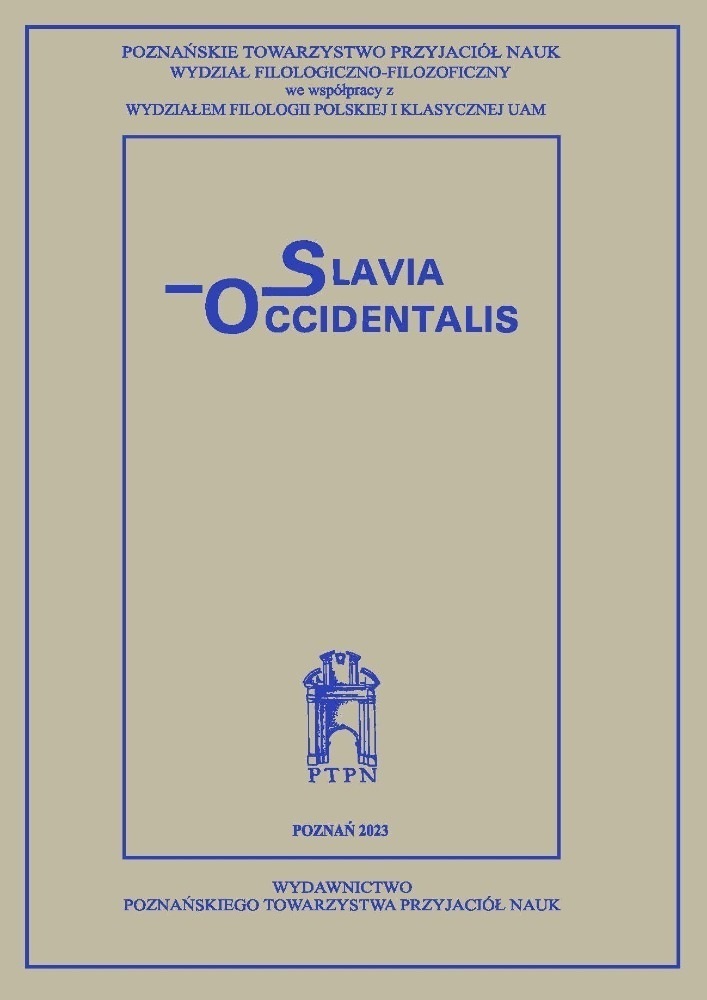Abstrakt
The study analyzes the relation between religion and art in the world, and in Slovak modernist literature. It also examines religion and art from the point of view of its scholarly reception in the context of European literature. It builds on the division of artists of religious orientation based on Bernhard Rang’s two types: a) Claudelian and b) Green-ian. A part of the study provides new insights into Slovak literary modernism. Despite the expectation that modernism would exclude Christian works of literature, the opposite happened: modernism tested Christian works of art and emphasized their ability to capture the subtle aspects of human existence. In this way, a weakness of modernism was exposed: its degenerative function when it focuses only on material aspects. A historical overview has shown that Slovak intellectuals were used to living in an alternative cultural environment and nurturing an alternative culture. This experience proved useful to them in the 20th century, particularly after 1945. During communist rule, the underground church played a major role in Poland and in Slovakia. In Slovakia, Catholic dissidents were of great importance to the developments that led to the Velvet Revolution in November 1989.
Bibliografia
Bátorová M., Dominik Tatarka slovenský Don Quijote (sloboda a sny), Bratislava 2012.
Bátorová M., Fenomén Rúfus, hodnota a význam jeho diela pre 20. a 21. storočie, „Slovenské pohľady“ 2009, roč. IV.+125, č. 3, s. 47–52.
Bátorová M., Katolícka moderna, [v:] J. Hvišč, V. Marčok, M. Bátorová, V. Petrík, Biele miesta v slovenskej literatúre, Bratislava 1991, s. 43–60.
Greene G., Paradox křesťanství, předmluva G. von le Fort, Praha 1970.
Guardini R., Zu Rainer Maria Rilkes Deutung des Daseins, Berlin 1941.
Guitton J., Boh a veda, Bratislava 1992.
Heist W., Georges Bernanos, [v]: Christliche Dichter der Gegenwart. Beiträge zur euopäischen Literatur, Hrsg. H. Friedmann, O. Mann, Heidelberg 1955, s. 128–136.
Hlbina P.G., Archív MS, 169 L 16, M 5, M 21.
Hvišč J., Marčok V., Bátorová M., Petrík V., Biele miesta v slovenskej literatúre, Bratislava 1991.
Konštantín Filozof, Proglas, Bratislava 1996.
Literatur und Religion, Hrsg. H. Koopmann, W. Woesler, Freiburg-Basel-Wien 1984.
Oliaz H.G., Graham Green, [v]: Christliche Dichter der Gegenwart. Beiträge zur euopäischen Literatur, Hrsg. H. Friedmann, O. Mann, Heidelberg 1955, s. 238–253.
Rang B., Paul Claudel, [v]: Christliche Dichter der Gegenwart. Beiträge zur euopäischen Literatur,
Hrsg. H. Friedmann, O. Mann, Heidelberg 1955, s. 73–90.
Ricoeur P., Die Fehlbarkeit des Menschen, Phänomenologie der Schuld I, Freiburg-München 1971.
Ricoeur P., Symbolik des Bösen, Phänomenologie der Schuld II, Freiburg-München 1971.
Ricoeur P., Geschichte und Wahrheit, München 1974.
Rochefort R., Kafka oder die unzerstörbare Hoffnung, Paris 1947, Wien 1955.
Sedlák K., Literárne dielo Tichomíra Milkina, Trnava 1941.
Sokel W.H., Zwischen Existenz und Weltinnenraum: Zum Prozess der Ent-Ichung in Malte Laurids Brigge, [v:] Rilke Heute, Frankfurt am Main 1975, s. 105–129.
Schirmbeck H., Der moderne Jesus Roman. Die Wiederkehr des Teufels, [v]: Christliche Dichter der Gegenwart. Beiträge zur euopäischen Literatur, Hrsg. H. Friedmann, O. Mann, Heidelberg 1955, s.436–455.
Taylor C., Wieviel Gemeinschaft braucht die Demokratie? Aufsätze zur politischen Philosophie, Frankfurt am Main 2002.
Theologie und Literatur. Zum Stand des Dialogs, Hrsg. W. Jens, H. Küng, K.J. Kuschel, München 1986.
Welsch W., Unsere postmoderne Moderne, III, Kapitel Neuzeit – Moderne – Postmoderne, Acta Humaniora VCH, Weinheim 1987.
Zambor J., Víťazný návrat Janka Silana, „Studia Academica Slovaca“ 1992, 21, s. 163–169.
Licencja
Prawa autorskie (c) 2016 Mária Bátorová

Utwór dostępny jest na licencji Creative Commons Uznanie autorstwa – Użycie niekomercyjne – Bez utworów zależnych 4.0 Międzynarodowe.
